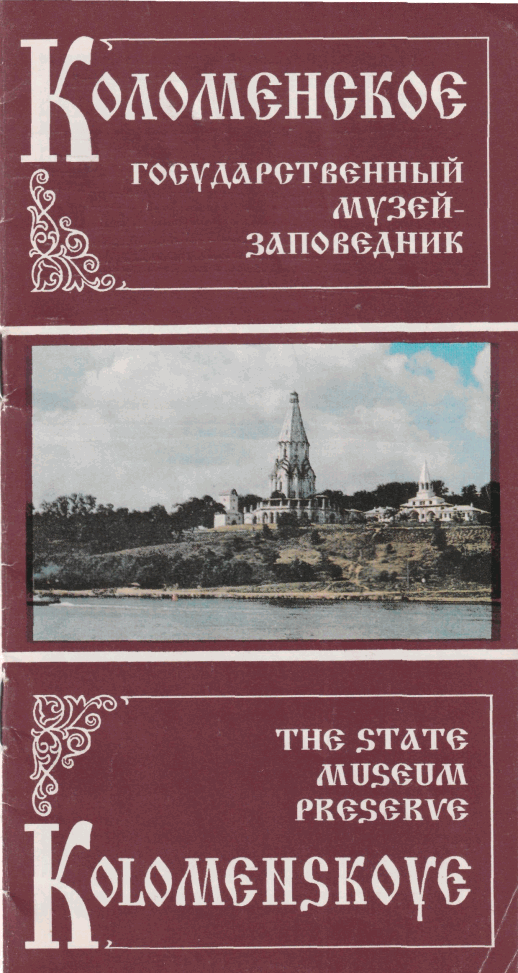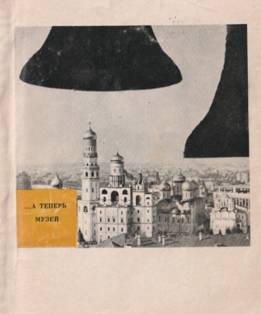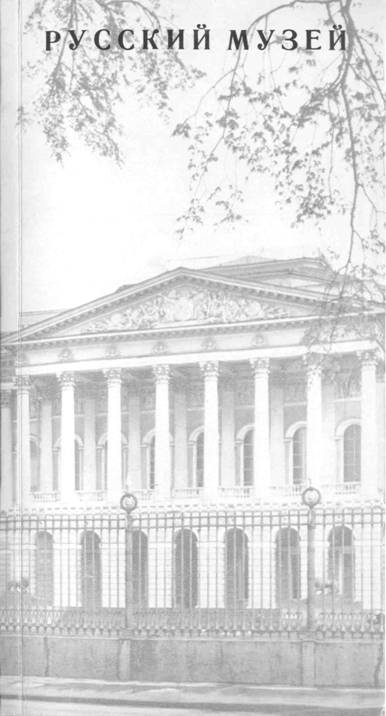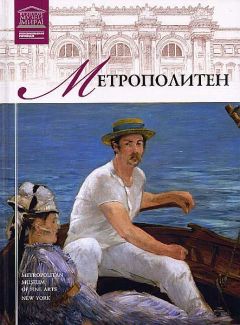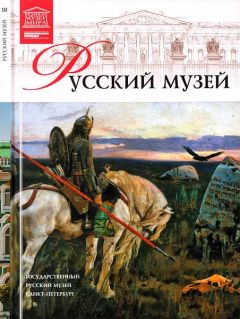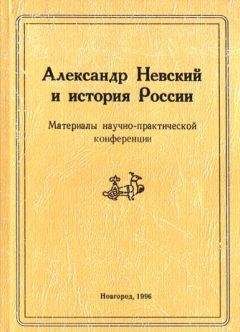1644 по 70-е годы XVII века. Дворцовый комплекс располагался на территории Государева дворца, обнесенного частично каменной, частично деревянной оградой. Главным парадным въездом на его территорию служили Передние или Дворцовые ворота, построенные в 1673 году. К воротам примыкают хозяйственные постройки усадьбы: Приказные и Полковничьи палаты, Сытный дворец, складские помещения, кухни, караульни, Фряжский погреб для заморских вин. У Спасских - Задних ворот размещался большой комплекс Кормового двора, разобранный в начале XIX века.
In 1640 at the command of the first Tsar of the Romanovs dynasty, Mikhail Fjodorovich, the construction of a new wooden palace commenced with works being continued in 1667. The best master-carpenters of XVII century took part in the construction, and the Palace became probably the most wonderful wooden building in Russia. A covered gallery connected the Palace with a new domestic church of Russian Tsars: the Church of the Virgin of Kazan, built between 1644 and 1670-ties. The palace buildings were situated within the territory of the Sovereign Palace, enclosed with partly stone and partly wooden fence. Front or Palace Gates built in 1673 served as the main entrance to its territory. Adjoining to the Gates there are outbuildings of the estate: Intendant and Colonel Chambers, Sytny Yard (dining-rooms for house-serfs), storehouses, kitchens, guardrooms, Frjazhsky cellar for overseas wines, etc. Near Spassky-Back Gates there was a large complex of the Fodder Yard buildings dismantled at the beginning of XIX century.

Д.А.Смирнов. Модель Коломенского дворца XVII века. 1865-1868 гг.
D.A.Smirnov. Kolomenskoye Palace (XV//) mode!, made in 1865-1868.
Карло Альбаччини. Бюст Петра 1. 60-е годы XVIII века
Carlo Albachini. Peter the Great's bust. 60-ties XVIII century
Домик Петра 1. 1702 год
Peter the Great's Cottage. 1702.
Коломенское являлось центром дворцовой волости, состоящей из 4 приселков и 9 деревень. Основную часть населения составляли крестьяне. На территории села со временем образовались специальные слободы из домов служителей усадьбы: Штатная, Садовники и Огородники. Усадьбу окружали шесть фруктовых садов, из которых сохранились три. Деревья были обновлены в XIX-XX веках.
Сын царя Алексея Михайловича - Петр I любил Коломенское, заботился о дворце. Здесь юным царевичем устраивались учения «потешных войск», речные походы на специально устроенных судах»! Однако бурные исторические события, в том числё и перенос столицы из Москвы в Петербург, не позволяли царю часто бывать в Коломенском. Усадьба приходит в запустение. Дочь Петра I - Елизавета пытается отремонтировать дворец, но неудачно, из-за отсутствия необходимых средств. 4 октября 1764 года в древнюю усадьбу приезжает вступившая на Российский престол императрица Екатерина II. Село и дворец ей понравились, однако после нескольких осмотров последовало приказание начать строительство нового дворца на месте бывших конюшенного и скотного дворов рядом с церковью Вознесения. На берегу Москвы-реки вырос новый четырехэтажный дворец, построенный по проекту архитектора князя П.Макулова. Однако вскоре усадьба приходит в запустение. В 1812 году французами был разорен Екатерининский дворец, и на его месте архитектор Е.Тюрин строит новый, Александровский, в стиле «ампир», разобранный «за ветхостью» в 70-е годы XIX века. От дворца сохранился хозяйственный павильон 1825 года, в котором в настоящее время музеем регулярно проводятся выставки.
В марте 1917 года в подклете церкви Вознесения Господня была обретена Великая Чудотворная икона Державной Богоматери, принявшая под свое покровительство русский народ в годы наступающего бедствия.
Kolomenskoye was a centre of the royal region including 4 near-by settlements and 9 villages. The main population of the region were peasants. In due course special settlements consisting of houses of those working and serving in the estate had appeared within the territory of Kolomenskoye village, such as Shtatnaya, Sadovniky and Ogorodniky. Six fruit gardens surrounded the residence, three of them still exist. In XIX-XX centuries all the trees were changed by new ones.
Tsar Aleksey Michailovich's son, Peter the First, liked to visit Kolomenskoye and took care of the Palace. Here the young prince held trainings of his «Poteshny regiments», undertook river expeditions on specially constructed ships. Nevertheless, vigorous historical events including removal of the Russian capital from Moscow to St.-Petersburg prevented the tsar from frequent visits to Kolomenskoye. The estate fell into a state of neglect. Peter the First's daughter Elizabeth tried to restore and repair the palace, but she failed because of the lack of money. On October 4th 1764 Empress Catharine the Second ascended the Russian throne came to the. ancient country residence. She liked the village and the Palace but after several inspections of the place she ordered to start construction of a new palace instead of the former stables and cattle yards near the Church of the Ascension. On the bank of the Moskva River a new 4-storied palace was built according to the design of architect Duke P.Makulov. However the estate had soon gone to rack and ruin. In 1812 the French army devastated the Catharine's Palace and in its place a new palace, Alexander's one, in the «Empire» style was built by architect E.Tjurin; this Palace was dismantled in. 1870-ties as it fell into decay. Out of the Palace buildings a household pavilion of 1825 has remained where exhibitions are arranged regularly nowadays.
In March 1917 in a store room of the Ascension Church the Great Thaumaturgic Icon of «The Virgin Majestic» was discovered which interceded the Russian people during the years of coming disaster.
1. Церковь Вознесения. 1532 г.
Church of the Ascension. 1532.
2. Георгиевская колокольня. 1-я половина XVI века.
Belfry of St. George. The 1st half of XVI century.
3. Водовзводная башня. Середина XVII века.
Vodovzvodnaya (Water) Tower. The middle of XVII century.
4. Передние (Дворцовые) ворота с органной палатой и часовой башней. 1673 г. Front (Palace) Gates, Organnaya Palata (Organ Chamber) and Sentry Tower. 1673.
5. Приказная палата XVII века (пристройка XVIII века).
Prikaznaya Palata (Intendant Chamber), XVII. The annexe dated XVI11 century.
6. Полковничьи палаты и ледники. XVII век.
Colonel Chambers and Ice-houses. XVII.
7. Сытный дворец. XVII век.
Sytny Yard (with dining rooms for house-serfs). XVII.
8. Казанская церковь. Середина
